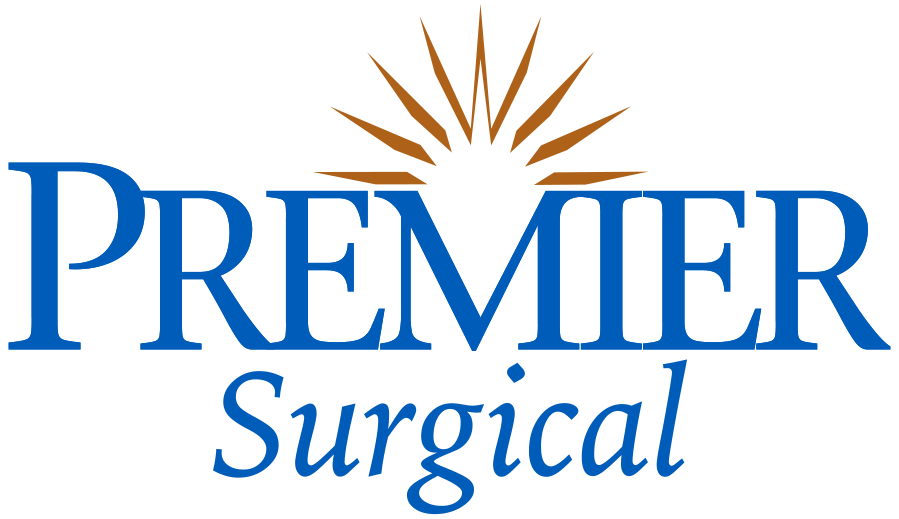
Melissa Smith, LPN
As a Premier Surgical Associates LPN, Melissa Smith answers a lot of questions from patients before and after surgery. She works with Premier General Surgeon Dr. David Harrell, and helps prepare and follow up with patients requiring a variety of surgeries related mostly to hernias, gallbladder, appendix, colon, thyroid, or pancreas diseases.
“I talk with each patient so they know what’s going to be done and why. We discuss what happens before, during, and after the surgical procedure, and then I follow up with them the day after their surgery to see if they have any questions,” Smith says. The following questions are common and relate to most surgeries.
How do I manage pain?
Patients typically are given a prescription for Percocet or Hydrocodone after surgery. Both of these medications can be taken as one or two tablets at a time, as frequently as every 4-6 hours. It’s also ok to use Ibuprofen or Tylenol (Acetaminophen) instead of the pain medication if able.
What should I do if I have a fever?
Most fevers in the first 2-3 days after surgery are due to lung congestion. If you experience low-grade fevers after discharge, the first step is to try to get out of bed, walk, cough, and breathe deeply as much as possible to open the lungs. If you experience a fever of greater than 101 degrees, please call your physician.
When should I change dressings, and what if there’s blood?
Change the bandages on your incision at the end of the first full day after surgery. The dressing will come off easily in the shower. Expect to see some blood on the incisions after discharge, which is very rarely a serious problem. If the incision is actively bleeding, apply firm pressure with a sterile 4×4 gauze over existing dressing for five minutes. Do not remove any dressings, just reinforce the existing one so as to not remove the clot. This should stop most minor episodes of bleeding, but if active bleeding continues through reinforced dressings, call your physician.
When can I shower?
Incisions can be washed in the shower at end of the first full day after surgery. Let water run over the incision, wash gently with soap and water, and pat dry. Soaking in a swimming pool or bathtub should be reserved for at least 7 days after surgery, or until the skin has healed together.
What can I eat?
Anesthesia medications are usually to blame for any nausea you may experience. Plan on eating lightly the night after surgery. Broths and ginger ale (except after Hiatal Hernia repair and Gastropexy surgeries, as carbonation can increase gas and put pressure on your stomach), are usual recommendations, or any comparable light fare. Typically, the day after surgery all of the anesthesia medications have been processed out of your system, and you can return to your normal diet. If you’re still queasy, continue with small meals of lighter foods.
When can I drive?
You’ll need a caregiver to drive you home after you’re discharged. Beyond that, it’s recommended that you don’t drive until you’ve been off of prescription pain medicines for at least 24 hours, and when you think that your reaction time if faced with a sudden crisis in traffic would not be compromised by pain from your surgery. This is typically 5-7 days after surgery.
How do I know if my incision is infected?
Many patients notice some mild redness around their incisions, and concerns about infection are common. Most infections occur between 5 and 10 days after surgery, and are characterized by pain, intense redness, and often drainage of yellow fluid or pus. Fever of 101 or greater can also accompany these signs. If these symptoms occur, contact your physician. Taking antibiotics by mouth is often sufficient treatment, but occasionally your surgeon will want you to come into the office early for an evaluation of the incision.
What kind of activity can I do after surgery?
While it’s expected that you will be sore, you should be able to walk on your own and will be encouraged to be up and about as much as you can tolerate. Expect your energy level to be decreased for at least a week after surgery, but be as active as you can. It’s generally recommended that you lift nothing greater than 10 pounds for 10 days for outpatient or day surgery. Do not lift more than 10 pounds for 6 weeks after open abdominal surgery, colon, or hernia surgeries.
How do I prevent constipation?
Anesthesia and pain medication can frequently cause constipation, so over the counter Metamucil Colace stool softeners and MiraLAX can be used daily after surgery for prevention.
When do I need to see the doctor again?
Most physicians will want to see you 7 to 14 days after most operations. There are exceptions, and your doctor will give you instructions on when to schedule your appointment.
“Our difference is our continuity of care,” Smith explains. “We have protocols and systems in place to make sure we’re able to get in touch with our patients. And of course patients are always encouraged to call our office with any questions they might have—that’s what we’re here for.”
Premier Surgical Associates is the largest general and vascular surgical group in the Knoxville region, providing comprehensive surgical care, with referrals from across the entire East Tennessee region. To learn more about our specialties, visit Premier Surgical Associates.
